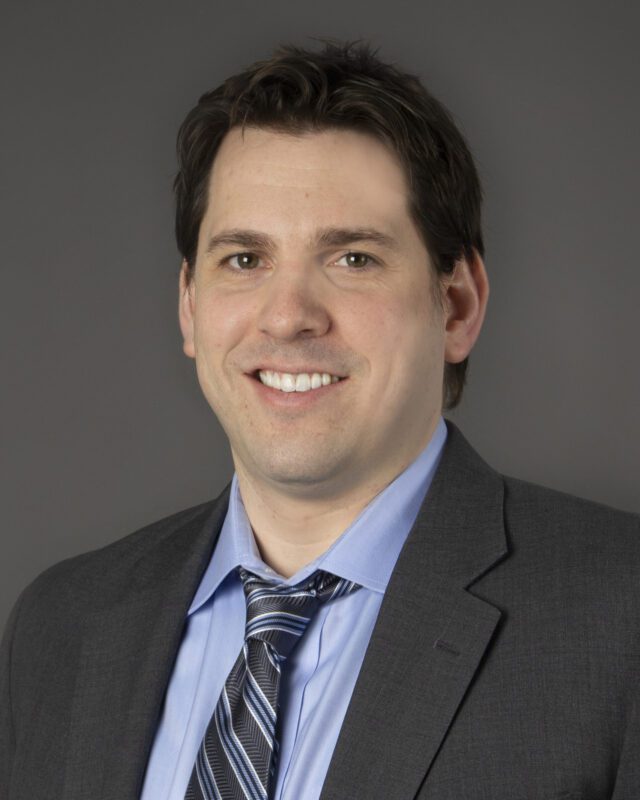
The finalists for WashingtonExec’s Pinnacle Awards were announced Oct. 13, and we’ll be highlighting some of them until the event takes place virtually Dec. 8.
Next is Cloud Industry Executive of the Year (Public Company) finalist Bob Ritchie, who’s vice president of the software practice with SAIC’s Strategy, Growth, and Innovation group. Here, he talks career turning points, learning from failures, proud career moments and more.
What key achievements did you have in 2020/2021?
Like everyone, I’m happy to have adjusted to a new way of doing business in the wake of the pandemic. On a personal level, I’m proud to have achieved some level of work-life balance by leaving behind a long commute and setting up a permanent office in my basement. Professionally, I’m proud of the work we have done at SAIC to help our government customers modernize their tech infrastructure, which helped them quickly shift to a telework or hybrid environment.
I’m also proud that during the great resignation, I have had very low attrition. I hope that’s because I’ve fostered an atmosphere that encourages growth and learning where people can be their best.
What has made you successful in your current role?
Radical collaboration. I’m lucky to be surrounded by software, cloud, cyber and immersive tech practitioners who are always willing to help each other be successful, to teach each other, and to have the humility to recognize there’s always something new to learn.
What are your primary focuses going forward, and why are those so important to the future of the nation?
Within the SAIC software practice, we continue to focus on secure cloud adoption, embracing DevOps, perpetual modernization and imagining the possibilities for the digital experience when we capitalize on our data-rich environment.
As the pandemic proved, cloud adoption is fundamental to a resilient technology infrastructure. DevOps is foundationally important for every organization in terms of rapidly and continually innovating. Perpetual modernization has both near-term importance and long-term importance for our nation so we erase years of technical debt and stay ahead of our near-peer adversaries.
Finally, data is everywhere and we’re losing out if we don’t harness it to improve decision making in all areas of our lives.
How do you help shape the next generation of government leaders/industry leaders?
By giving back and instilling in others a passion for learning. I have benefited from great teachers and mentors my entire life, including my parents. When I learn something new, I have a responsibility to share that knowledge. We all do.
I am committed to democratizing knowledge around DevOps, secure cloud adoption and all aspects of digital transformation, whether it be through communities of practice, technology conferences or tech talks. This is how we grow together as a technology community.
What was your biggest career struggle and how did you overcome it?
As a people pleaser, I struggle with saying no to anyone who needs advice or technical assistance. However, as a leader at SAIC, I realize that being always available may send the wrong message to the people in my charge.
When we say yes to too many things, we can quickly become overcommitted and this may lead to inconsistent delivery because of a lack of focus. More importantly, it can lead to burnout of the dedicated and talented people who report to me.
I have learned to ask for help and accept it when offered. One such offer was from teammates who helped me establish a Kanban board for our organization to clearly and transparently communicate our work in progress and our priorities. I still rarely say “no,” but I’ve gotten better at “not yet.”
What’s your best career advice for those who want to follow in your footsteps?
Two critical pieces of advice I received early my career boil down to this: be continually learning and teaching.
On my first day of work at SAIC (age 20), my boss, a retired Navy captain helicopter pilot, sat me down and said, “Bob, your job here is to work yourself out of a job.” I was confused at first, but quickly realized what he meant.
By continually working myself out of a job, either through automation, mentoring/teaching another or any number of ways to make myself redundant, I would not only be advancing the health and prosperity of the enterprise and those around me, but would be perpetually freeing myself for growth and new opportunities.
Right after my first promotion, another mentor said, “Make sure 10 years from now, when you look back on your career so far, you have had 10 years of experience, not just 1 year of experience 10 times.”

